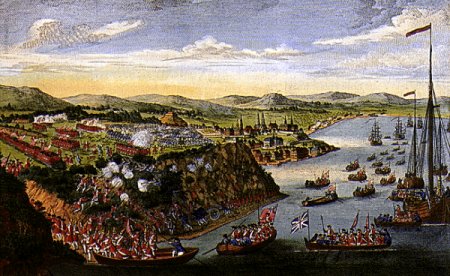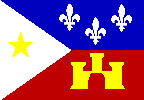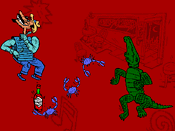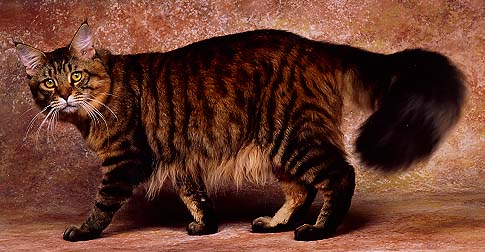
Scott Michaud's Franco American Page
What A Long, Strange Trip It's Been....
~ Mais Je Me Souviens ~

|
Since I have ancestors from all three of the major French immigrations to the New World (Acadian, Québécois, and Huguenot), I created this page as a reminder of our greater Franco-American heritage. | ||

Cardinal Richelieu |

Evangeline |

The Fall of Québéc, |
| Cardinal Richelieu's persecution of the Huguenots would culminate in the siege of La Rochelle. Its eventual fall destroyed the center of Protestant power in France and forced over 200,000 Huguenots to flee for more tolerant lands, such as Switzerland, Germany, Holland, and Britain. By 1725, as many as 7000 Huguenot refugees had already reached the shores of America, largely in New England, New York, Pennsylvania, Virginia and South Carolina. | In 1755, the British began to forcibly evict the neutral Acadians from Nova Scotia for refusing to take up arms against their Québécois brethren in Canada. Families were split up, property burned, and hundreds perished in the crowded and unsafe ships of the British as a result of Le Grand Dérangement. | In 1760, the fall of Québéc brought about the end of French rule in what is now Canada. By the terms of the Treaty of Paris signed in 1763, France lost all its territories in North America except the Louisiana territory and the islands of Saint-Pierre and Miquelon. The Québécois were now a people ruled by the British. |

"THE GOOD LORD REMEMBERS A SURVIVOR'S TALE OF |
|
HOW WERE FRENCH AMERICANS VIEWED IN AMERICA 100 YEARS AGO? |
| WHAT DO YOU MEAN BY CAJUN? |


|
ACADIAN OR CAJUN? What's the difference? | |
|
Cajun Things, Y'all!

When Ponce De Leon and his band died near the present-day parish of La Salle, they left many horses, hogs, and dogs with the local Indians. De Leon brought dogs of the same breed as the modern Great Dane with him, which he used to hunt and as guard dogs.
Not a true hound, but not a shepherd dog either, the Catahoula is a stocky
and intelligent dog whose baying can be heard for miles. Since Native Americans
used the dogs to find their wild-roaming hogs, the resulting breed is particularly adept at certain types of herding.
|
Acadian Things, Eh!

Maine Coons develop slowly, and don't achieve their full size until they are three to five years old. Their dispositions remain kittenish throughout their lives; they are big, gentle, good-natured goofs.
Even their voices set them apart from other cats; they have a distinctive, chirping trill which they use for everything from courting to cajoling their people into playing with them. And as a Maine Coon owner, I can vouch for how much these cats love to play (Given a chance, they will joyfully retrieve small items, like mice, birds, squirrels, and compact cars...) What's interesting is that they rarely meow, and when they do, it is in such a soft, tiny voice that you can't believe such a large, rugged cat made that small a sound...
|

|
GET CONNECTED with other Franco-American community voices. Order your complimentary copy of LE FORUM today -- the only French bilingual, socio-culturaljournal in the US.
CONTACT:
|

CAJUN MUSIC LINKS | ||
 Alligator Records & CJ Chenier! |
 Beausoleil avec Michael Doucet! |
|

| HOME | Writing Resource Page | Genealogy Page | INDEX |
MAZHUDE@HOTMAIL.COM Professional writer, editor, fact-finder, and occasional user of Standard American English. |
Thanks for stopping by. You are one ofvisitors here.
GUESTBOOK,
which may
or may not still work.
My
NEW and IMPROVED
Guestbook
Please Sign In!
Well, now you can just
Look At My Guestbook
without signing in!


Or go directly to the CDNOW
BEAUSOLEIL Collection!

 This
Franco-American Webring site is owned by
This
Franco-American Webring site is owned by
Scott Michaud
Want to join the Franco-American Webring?
[Skip Prev]
[Prev]
[Next]
[Skip Next]
[Random]
[Next 5]
[List Sites]






